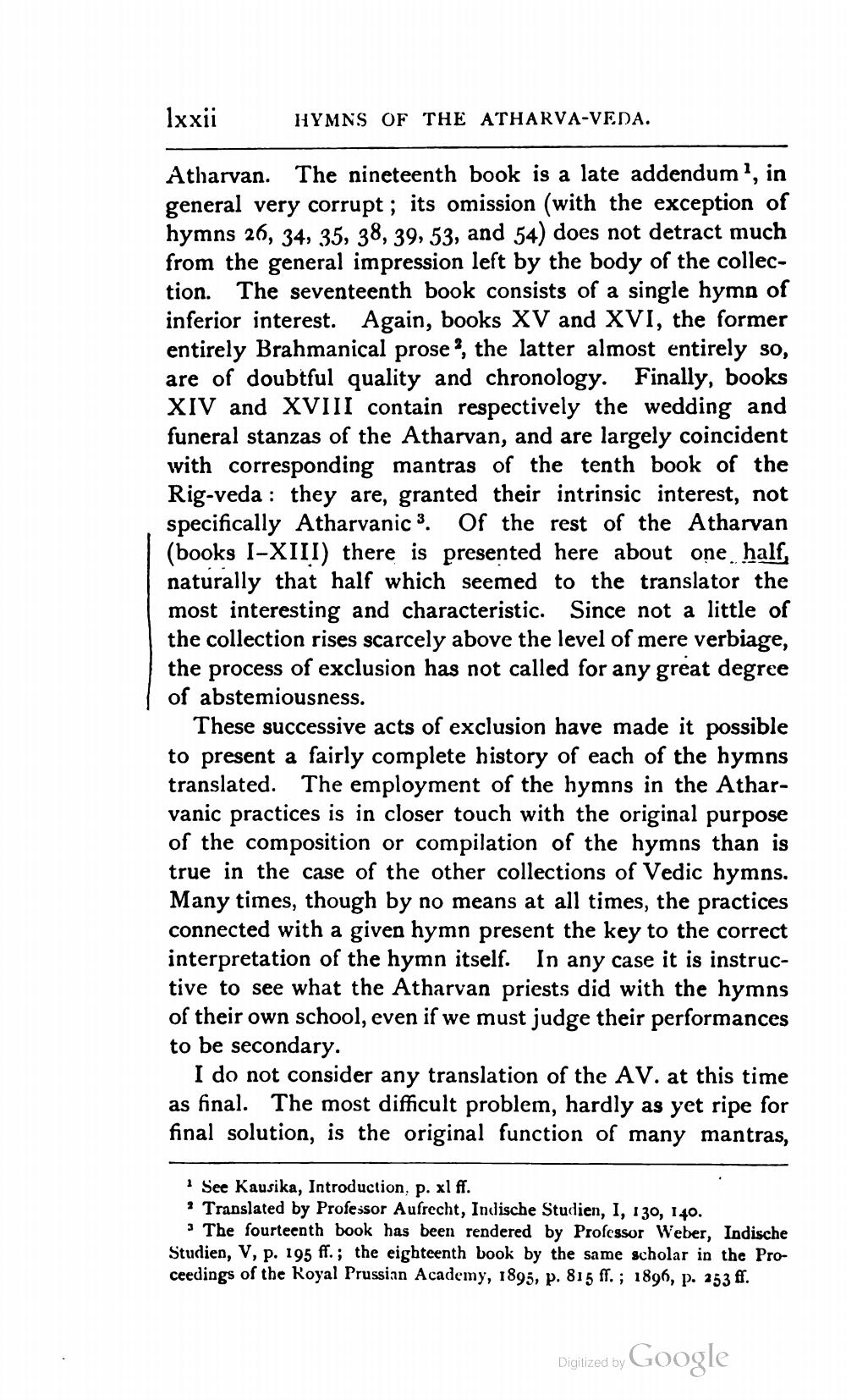________________
Ixxii
HYMNS OF THE ATHARVA-VEDA.
Atharvan. The nineteenth book is a late addendum, in general very corrupt; its omission (with the exception of hymns 26, 34, 35, 38, 39, 53, and 54) does not detract much from the general impression left by the body of the collection. The seventeenth book consists of a single hymn of inferior interest. Again, books XV and XVI, the former entirely Brahmanical proses, the latter almost entirely so, are of doubtful quality and chronology. Finally, books XIV and XVIII contain respectively the wedding and funeral stanzas of the Atharvan, and are largely coincident with corresponding mantras of the tenth book of the Rig-veda : they are, granted their intrinsic interest, not specifically Atharvanic 3. Of the rest of the Atharvan (books I-XIII) there is presented here about one half, naturally that half which seemed to the translator the most interesting and characteristic. Since not a little of the collection rises scarcely above the level of mere verbiage, the process of exclusion has not called for any great degree of abstemiousness.
These successive acts of exclusion have made it possible to present a fairly complete history of each of the hymns translated. The employment of the hymns in the Atharvanic practices is in closer touch with the original purpose of the composition or compilation of the hymns than is true in the case of the other collections of Vedic hymns. Many times, though by no means at all times, the practices connected with a given hymn present the key to the correct interpretation of the hymn itself. In any case it is instructive to see what the Atharvan priests did with the hymns of their own school, even if we must judge their performances to be secondary.
I do not consider any translation of the AV. at this time as final. The most difficult problem, hardly as yet ripe for final solution, is the original function of many mantras,
"See Kausika, Introduction, p. xlff.
Translated by Professor Aufrecht, Indische Studien, 1, 130, 140. 3 The fourteenth book has been rendered by Professor Weber, Indische Studien, V, p. 195 ff.; the eighteenth book by the same scholar in the Proceedings of the Royal Prussian Academy, 1895, p. 815 ff.; 1896, p. 253 ff.
Digitized by Google




